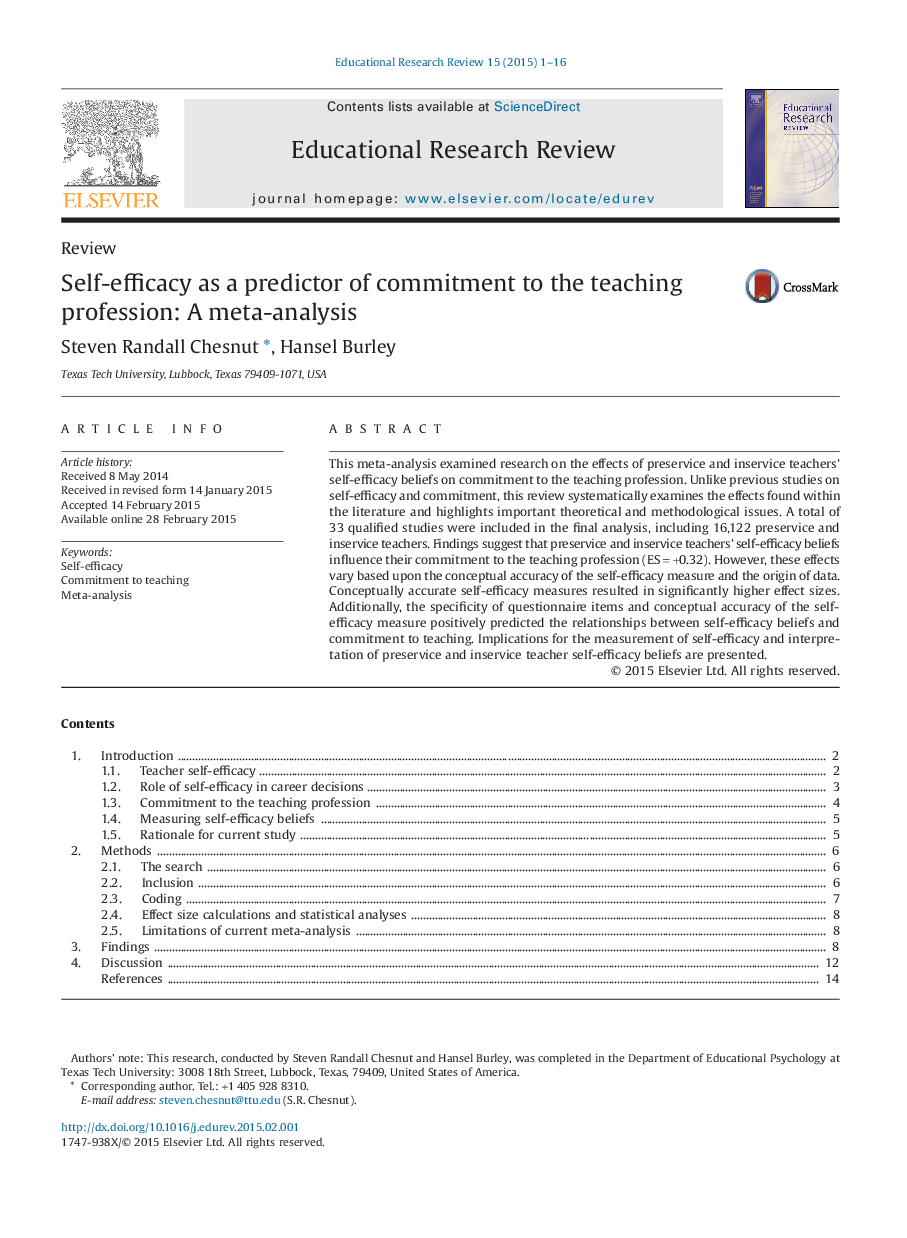| کد مقاله | کد نشریه | سال انتشار | مقاله انگلیسی | نسخه تمام متن |
|---|---|---|---|---|
| 355079 | 619233 | 2015 | 16 صفحه PDF | دانلود رایگان |
• We examine characteristics of self-efficacy measures for teachers.
• We examine relationships between self-efficacy beliefs and commitment to teaching.
• Conceptually accurate self-efficacy measures more highly correlated with commitment.
• Conceptual accuracy and item specificity predict higher correlations to commitment.
• Findings are consistent across internationally representative studies.
This meta-analysis examined research on the effects of preservice and inservice teachers' self-efficacy beliefs on commitment to the teaching profession. Unlike previous studies on self-efficacy and commitment, this review systematically examines the effects found within the literature and highlights important theoretical and methodological issues. A total of 33 qualified studies were included in the final analysis, including 16,122 preservice and inservice teachers. Findings suggest that preservice and inservice teachers' self-efficacy beliefs influence their commitment to the teaching profession (ES = +0.32). However, these effects vary based upon the conceptual accuracy of the self-efficacy measure and the origin of data. Conceptually accurate self-efficacy measures resulted in significantly higher effect sizes. Additionally, the specificity of questionnaire items and conceptual accuracy of the self-efficacy measure positively predicted the relationships between self-efficacy beliefs and commitment to teaching. Implications for the measurement of self-efficacy and interpretation of preservice and inservice teacher self-efficacy beliefs are presented.
Journal: Educational Research Review - Volume 15, June 2015, Pages 1–16
